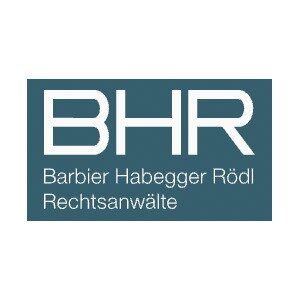Best Foreclosure Lawyers in Zug
Share your needs with us, get contacted by law firms.
Free. Takes 2 min.
Free Guide to Hiring a Real Estate Lawyer
List of the best lawyers in Zug, Switzerland
About Foreclosure Law in Zug, Switzerland
In the canton of Zug, Switzerland, foreclosure law is mainly regulated by federal law. Foreclosure refers to the legal process initiated by a lender to reclaim the property when the homeowner defaults on their mortgage payments. In Switzerland, foreclosure typically follows a procedure called 'Betreibung', or debt enforcement, where creditors can begin proceedings if debts are not paid within a specified period after issuing a final reminder.
Why You May Need a Lawyer
Foreclosure can be a complicated and stressful process, potentially leading to the loss of your property. Legal issues can arise about mortgage terms, payment obligations, or the debt enforcement process itself. Therefore, legal advice might be needed to navigate the foreclosure proceedings and protect your rights. Furthermore, a lawyer can help explore alternative solutions that may prevent foreclosure, such as renegotiating the mortgage terms with the lender or filing for bankruptcy.
Local Laws Overview
The debt enforcement and foreclosure process in Switzerland is regulated by the Swiss Federal Act on Debt Collection and Bankruptcy. In Zug, if a borrower defaults on his/her mortgage payments, the lender can initiate enforcement proceedings. The borrower will be given a payment order and if no legal action against this is taken within 20 days, the enforcement office might initiate a real estate foreclosure. The property is usually then sold at a public auction. A local foreclosure lawyer can provide more specifics and how it pertains to your situation.
Frequently Asked Questions
What can I do to stop a foreclosure?
You might be able to halt the foreclosure process by paying the outstanding debt or by launching a legal objection. A lawyer can provide more personalized advice.
Can my property be sold without my consent?
Yes, once the foreclosure process is initiated and if you fail to halt the procedure, the property can be sold at a public auction without your consent.
What happens after my property is sold at a public auction?
Once your property is sold, the debt owed to the lender is settled from the sales proceeds. If there is a surplus, it will be returned to you. If the sales proceeds do not cover the debt, you will still owe the outstanding balance to the lender.
Can I negotiate with my lender to avoid foreclosure?
Yes, in many situations, it is possible to renegotiate the terms of your loan, or come up with a payment plan with your lender to avoid foreclosure.
What happens if I can't afford a lawyer?
You can reach out to local legal aid societies. There are also some organizations that provide free or reduced-cost legal assistance.
Additional Resources
You can seek more information from the Federal Office of Justice's website, which gives a broad overview of debt enforcement and bankruptcy law in Switzerland. The Cantonal Office of Justice in Zug can also provide relevant information and support. Furthermore, there are various NGOs at the local and national level that provide support and advice in foreclosure cases.
Next Steps
If you are facing potential foreclosure, you should contact a lawyer specializing in foreclosure law immediately. The sooner you seek legal advice, the more options you may have to deal with the situation. You may also reach out to the Cantonal Office of Justice in Zug or your local legal aid office for further assistance.
Lawzana helps you find the best lawyers and law firms in Zug through a curated and pre-screened list of qualified legal professionals. Our platform offers rankings and detailed profiles of attorneys and law firms, allowing you to compare based on practice areas, including Foreclosure, experience, and client feedback.
Each profile includes a description of the firm's areas of practice, client reviews, team members and partners, year of establishment, spoken languages, office locations, contact information, social media presence, and any published articles or resources. Most firms on our platform speak English and are experienced in both local and international legal matters.
Get a quote from top-rated law firms in Zug, Switzerland — quickly, securely, and without unnecessary hassle.
Disclaimer:
The information provided on this page is for general informational purposes only and does not constitute legal advice. While we strive to ensure the accuracy and relevance of the content, legal information may change over time, and interpretations of the law can vary. You should always consult with a qualified legal professional for advice specific to your situation.
We disclaim all liability for actions taken or not taken based on the content of this page. If you believe any information is incorrect or outdated, please contact us, and we will review and update it where appropriate.








